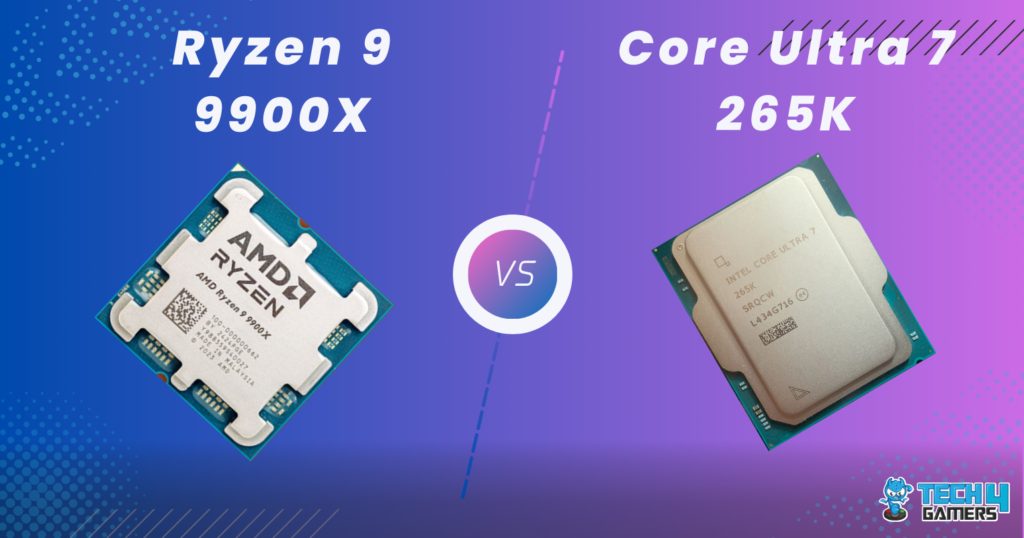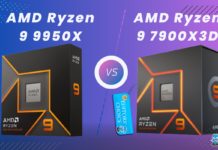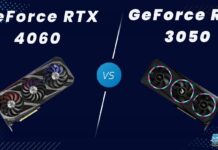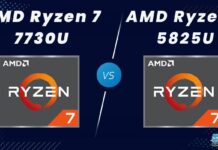AMD Ryzen 9 9900X Rated: 8/10 Intel Core Ultra 7 265K Rated: 7.8/10
Pros And Cons
| CPU | Pros | Cons |
|---|---|---|
| Ryzen 9 9900X | ✅ Has 34 MB larger L3 cache size ✅ 4% higher Turbo Boost frequency | ❌ Higher Power Consumption |
| Core Ultra 7 265K | ✅ Has 8 more physical cores ✅ More modern manufacturing process | ❌Slightly worse in terms of performance |
Comparison Table
| Feature | Core Ultra 7 265K | Ryzen 9 9900X |
|---|---|---|
| Codename | Arrow Lake | Zen 5 (Granite Ridge) |
| Model number | 265K | - |
| Integrated GPU | Arc Xe2 (Arrow Lake-S) | Radeon Graphics |
| Fabrication Process | 3 nm | 4 nm |
| Socket | FCLGA-1851 | AM5 |
| Integrated Graphics | Intel Arc Xe2 (Arrow Lake-S) | Radeon Graphics |
| Best Motherboards | - | The Best Motherboards For Ryzen 9 9900X |
| Best CPU Coolers | - | The Best CPU Coolers For Ryzen 9 9900X |
| Processor Review | - | AMD Ryzen 9 9900X Review |
Architectural Differences
- Core Count: The Core Ultra 7 265K has 20 cores (8 P-cores and 12 E-cores) and 20 threads, the Ryzen 9 9900X has 12 cores and 24 threads.
- Clock Speed: The Intel processor has a base clock of 3.9GHz and a boost clock of up to 5.4GHz, which is very different from the 9900X’s 4.4GHz base and 5.6GHz boost clocks.
- Process Node: The 9900X is built on a 4nm manufacturing process, which is a hair older than the 3nm process of the 265K.
- TDP: The Core Ultra 7 265 K’s PL1 TDP is around 125 watts, whereas the Ryzen 9 9900X’s is 120 watts.
- Cache: The Core Ultra 7 265K has 30MB of L3 cache, whereas the Ryzen 9 9900X has a much larger 64MB L3 cache buffer.
When it comes to disappointing chips, very few put a frown on our faces, quite like the ones that we will be talking about today. In the Core Ultra 7 265K vs Ryzen 9 9900X comparison, we will compare every aspect of these processors to see which one best suits you.
Gaming Benchmarks – 1080p
We’ve gone over what makes these chips tick, but the best way to uncover the performance of the Core Ultra 7 265K vs Ryzen 9 9900X is to pit them against one another in gaming tests. To do this, we constructed a measured test bench, the specs of which are listed below:
Test Bench
- OS – Windows 11
- CPU Cooler – Enermax LiqMaxFlo 360mm
- Graphics Card – GIGABYTE RTX 4090 Gaming OC 24G
- SSD – XPG Gammix S50 Lite
- Power Supply – be quiet! Dark Power Pro 13 1300W
- Mobo (AMD) – ASRock X870E Taichi Lite
- Mobo (Intel) – MSI MPG Z890 Edge Ti WiFi Review
Star Wars Jedi: Survivor

- In our first test, the Ryzen 9 9900X had an average framerate of 155 FPS, whereas the Core Ultra 7 265K had an average framerate of around 146 FPS, which marked a 6% difference.
- The difference shrank to only 3% when we tested the 1% lows of these processors. The 9900X dipped to around 132 FPS, whereas the 265K had lows of around 128 FPS.
The Last Of Us Part 1

- We saw a shift towards the 265K in The Last Of Us Part 1, where the chip had an average framerate of 193 FPS, whereas the 9900X averaged about 172 FPS, giving the Intel chip a 12% lead.
- 1% lows were also higher on the Intel chip in our test, with the 9900X getting lows of around 116 FPS, which was about 17% lower than the 136 FPS of the Core Ultra 7 265K.
Cyberpunk 2077

- In our Cyberpunk test, the Ryzen was ahead by around 6.7%, with an average framerate of 158 FPS, whereas the Core Ultra 7 265K hovered around an average of 148 FPS.
- The difference was only 1.77% in our testing, where the 9900X had lows of around 115 FPS, while the Core Ultra 7 265K had lows of around 113 FPS.
Hogwarts Legacy

- The 265K pulled ahead in our test of Hogwarts Legacy. Its average framerate was 119 FPS, around 2.56% higher than the 9900X’s 116 FPS.
- The 1% lows had a much larger difference. The Core Ultra 7 got a minimum framerate of around 83 FPS, which was about 26% higher than the 9900X’s 66 FPS.
Remnant 2

- The 265K kept up its performance in Remnant 2, where it had an average framerate of 117 FPS, which was about 2.63% higher than the 114 FPS that the Ryzen 9 9900X could muster.
- The lows had a 6.2% advantage on the 265K, where the 1% lows were around 103 FPS, whereas the Ryzen 9 9900X went down to around 97 FPS in our testing.
Homeworld 3

- The 9900X finally made up for its losses in Homeworld 3, where it had an average framerate of 91 FPS, which was around 8.33% higher than the 84 FPS supplied by the Core Ultra 7.
- The minimums were also much better on the Ryzen at around 44 FPS, which was a 57.2% improvement over the 28 FPS of the Core Ultra 7 265K.
A Plague Tale: Requiem

- There was a huge 21% advantage when playing this game on the Ryzen processor, which ran with 147 FPS on average, while the Core Ultra hung around about 121 FPS.
- The minimums were 49% higher on the Intel chip, where the lows dipped to around 109 FPS, whereas the Core Ultra 7 265K hovered closer to lows of 73 FPS.
Hitman 3

- Finally, the averages were around 4% higher in Hitman 3 on the Core Ultra processor at 256 FPS, while the Ryzen 9 9900X played this game at around 246 FPS in our testing.
- The 1% lows were around 214 FPS on the 9900X, which was about 8.5% lower than the 232 FPS of the Core Ultra 7 265K.
Productivity Benchmarks
Now that we have completed our suite of gaming benchmarks, it’s time to see how these processors perform against one another in productivity tests. We’ve used the same test bench we used for the gaming benchmarks to get these readings.
Cinebench R24

- The Core Ultra 7 was around 4.32% faster in the Cinebench R24 single-core test, scoring around 145 points compared to the Ryzen 9 9900X’s 139 points.
- The multi-core performance of the Core Ultra 7 265K was greatly improved, with a score of 2165 points. It was around 18% faster than the Ryzen 9 9900X’s 1834 points.
7-Zip

- The 7-Zip compression test ran slightly better on the Intel chip, with a score of around 182 points. This marked a 5.2% advantage over the 173 points of the Core Ultra 7 265K.
- The decompression test was much faster on the Ryzen processor. It scored 208 points, which was about 18% faster than the Core Ultra 7 265K’s 176 points.
Photoshop

- The Ryzen had very noticeably better performance than the Ryzen 9 9900X, which led by a margin of around 28.2%.
- The 9900X scored around 11853 points in the Pudget Systems benchmark, which was much higher than the 9246 points that the Core Ultra 7 secured.
Overall Performance
Average Framerate
In our testing, there was quite a bit of back-and-forth between these two chips. In some games, the 9900X would come a bit ahead, whereas others saw the 265K reach in front. Overall, the 9900X was a mere 1.27% faster in average framerate compared to the Core Ultra 7 265K.
1% Lows
The pattern in the averages holds true for the 1% lows. The 9900X would be slightly faster in some tests, while the 265K would come ahead by a bit in others. Overall, there was a minuscule 0.34% advantage for the Intel chip, which was nothing close to being noticeable.
Productivity
Half of the tests ran better on the Ryzen, while half ran better on the 265K. Despite this, it is important to note that the Ryzen was much better than the Intel chip in Photoshop, which is the best indicator for real-world productivity performance.
Power
| Game | Ryzen 9 9900X | Core Ultra 7 265K |
|---|---|---|
| Star Wars Jedi: Survivor | 106 | 105 |
| The Last Of Us Part 1 | 116 | 117 |
| Cyberpunk 2077 | 121 | 119 |
| Hogwarts Legacy | 101 | 102 |
| Remnant 2 | 125 | 123 |
| Homeworld 3 | 104 | 98 |
| A Plague Tale: Requiem | 128 | 122 |
| Hitman 3 | 103 | 102 |
| Average Power Draw | 113⚡ | 111⚡ |
| Winner: Core Ultra 7 265K | ||
Intel has made up the ground it lost with the gains in power efficiency in the new Core Ultra series of chips. The 265K had virtually identical power consumption to the Ryzen, even beating it by a couple of watts on average. The difference was 1.8%, which is insignificant, but it is a huge improvement from the losses Intel was taking in this department.
Temperature
| Game | Ryzen 9 9900X | Core Ultra 7 265K |
|---|---|---|
| Star Wars Jedi: Survivor | 75 | 68 |
| The Last Of Us Part 1 | 74 | 64 |
| Cyberpunk 2077 | 70 | 66 |
| Hogwarts Legacy | 74 | 78 |
| Remnant 2 | 67 | 67 |
| Homeworld 3 | 65 | 65 |
| A Plague Tale: Requiem | 77 | 68 |
| Hitman 3 | 66 | 76 |
| Average Temperatures | 71🌡️ | 69🌡️ |
| Winner: Core Ultra 7 265K | ||
The difference in temperatures is also inconsequential. The 9900X was two degrees or about 3% warmer than the Core Ultra, but neither processor reached worrisome temperatures. Both stayed well within safe ranges in our testing.
Price And Value
| CPU | Ryzen 9 9900X | Core Ultra 7 265K | Price Difference |
|---|---|---|---|
| Launch MSRP | 💲499 | 💲394 | 26.65% |
| Current Price | 💲382 | 💲384 | 0.52% |
Since its release, the Ryzen 9 9900X has been heavily discounted, and we assume this will stay so for the rest of its life cycle. However, this discount only brings it very close to the price of the Core Ultra 7 265K while not beating it. In our research, we only saw a $2 difference.
What We Recommend
Core Ultra 7 265K: Though less powerful than its predecessor, this Intel chip brings much-needed innovation to Intel’s chip lineup. It has adequate performance, good power efficiency, and an appropriate price range. Its higher multicore performance might also be a key feature for some.
Ryzen 9 9900X: With its recent discount, the Ryzen 9 9900X competes with the Core Ultra 7 265K, achieving similar results in all aspects. For this comparison, its performance, power consumption, productivity, and price are the same as those of its rival processor.
All this discussion leads to our recommendation, which is quite tough. We recommend you go with the Ryzen 9 9900X because of its upgrade path to the 9800X3D and maybe even the 9900X3D and 9950X3D when those are released, which are excellent chips for gaming.
No, both of these chips only support higher-speed DDR5 RAM. Yes, the Ryzen 9 9900X uses hyperthreading, unlike the Core Ultra 7 265K. No, only AMD’s X3D line of chips has a 3D V-Cache, which has been proven to be excellent for any sort of gaming performance. Yes, both the Core Ultra 7 265K and the Ryzen 9 9900X have overclocking support. The Ryzen 9 9900X uses the AMD AM5 Socket. FAQs
More From Ryzen 9 9900X More From Core Ultra 7 265K
Thank you! Please share your positive feedback. 🔋
How could we improve this post? Please Help us. 😔
[Comparisons Expert]
Abdemanaf is a skilled creative writer who has been honing his craft since 2011. While initially working in different fields, he found a passion for technology and has been exploring the tech world since early 2015. Over the years, he has developed an in-depth knowledge of the latest tech trends and product offerings by various companies.
Abdemanaf’s writing reflects his analytical mindset and ability to think critically. He has a knack for breaking down complex technical information into easily digestible pieces, making his articles engaging and accessible to readers from all backgrounds. In February 2022, he joined Tech4Gamers as a blog and product comparison writer, where he has been able to hone his skills further.
As a writer, Abdemanaf is dedicated to staying up-to-date with the latest technological advancements and trends, enabling him to provide readers with the most relevant and accurate information. He is always eager to learn more and is constantly seeking new challenges to improve his skills.
Get In Touch: manaf@tech4gamers.com




![RTX 2080 Ti vs RTX 3090 Ti [8 Games Tested]](https://tech4gamers.com/wp-content/uploads/2023/05/RTX-3090-Ti-Vs-RTX-2080-Ti.jpg)


